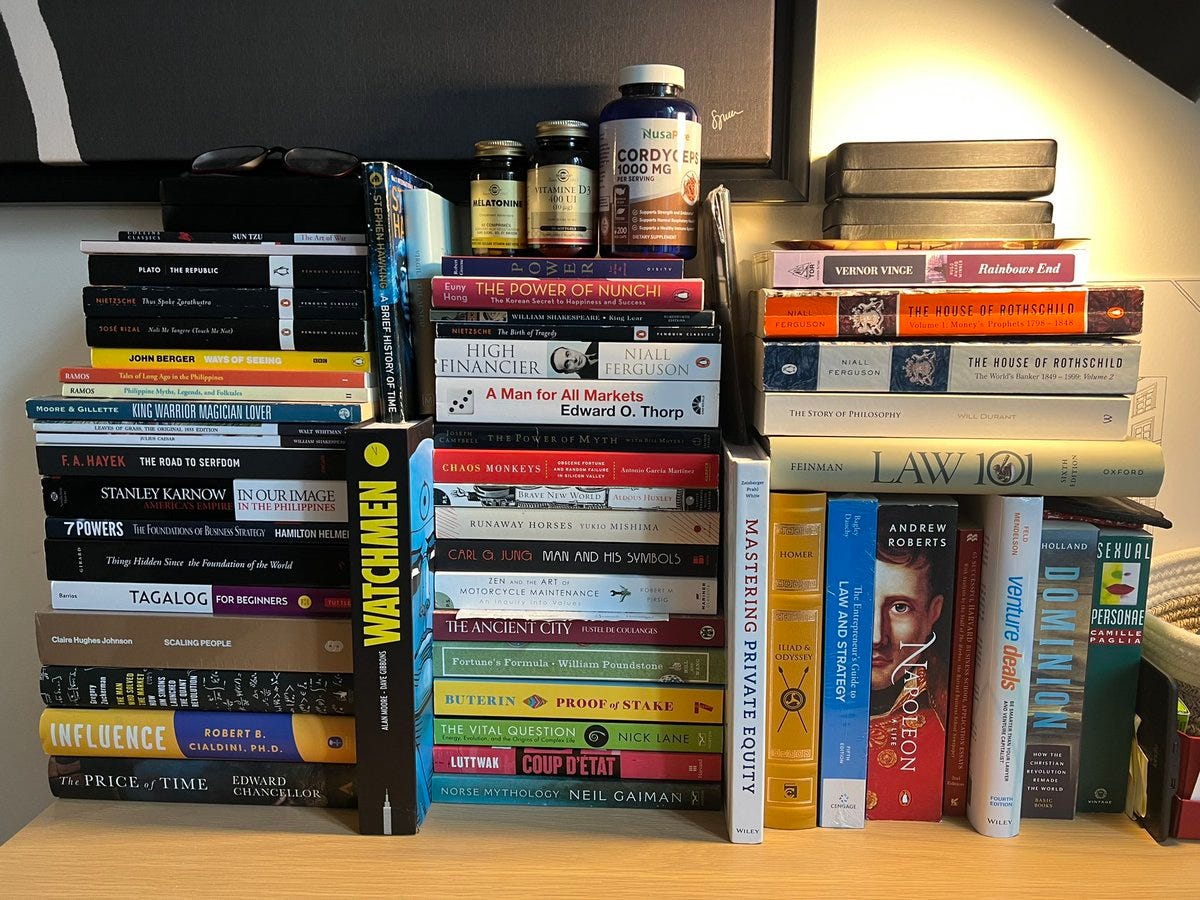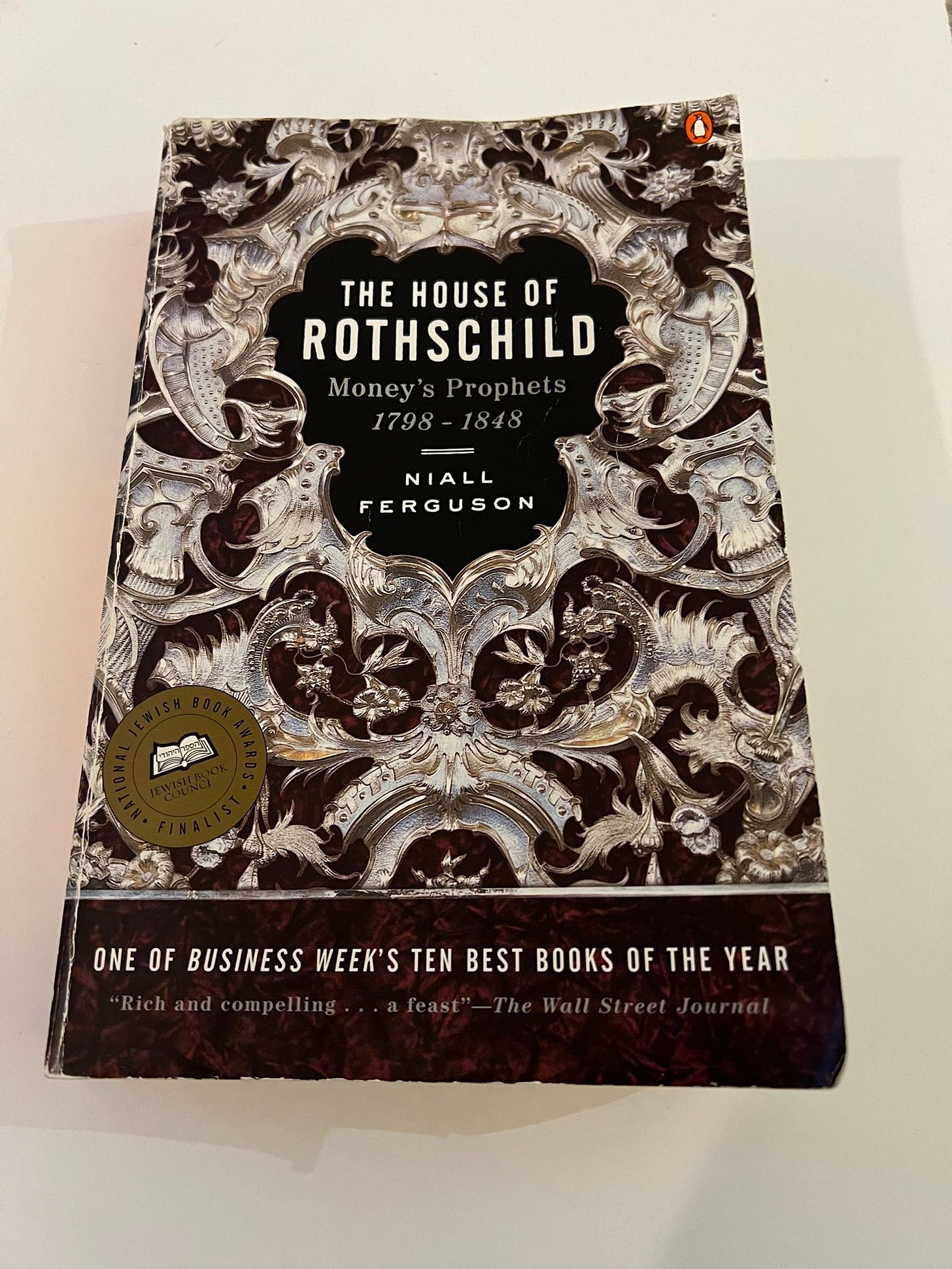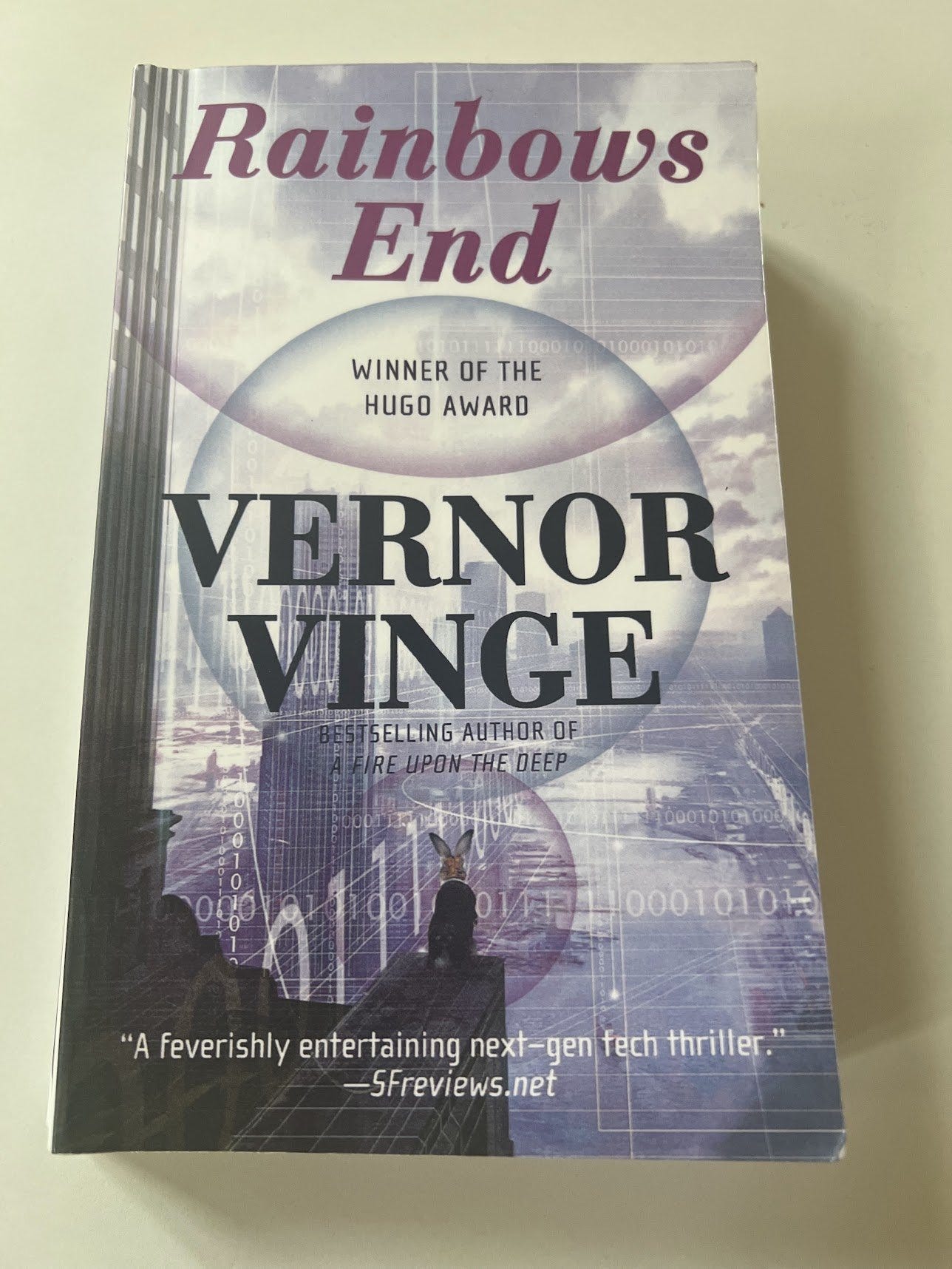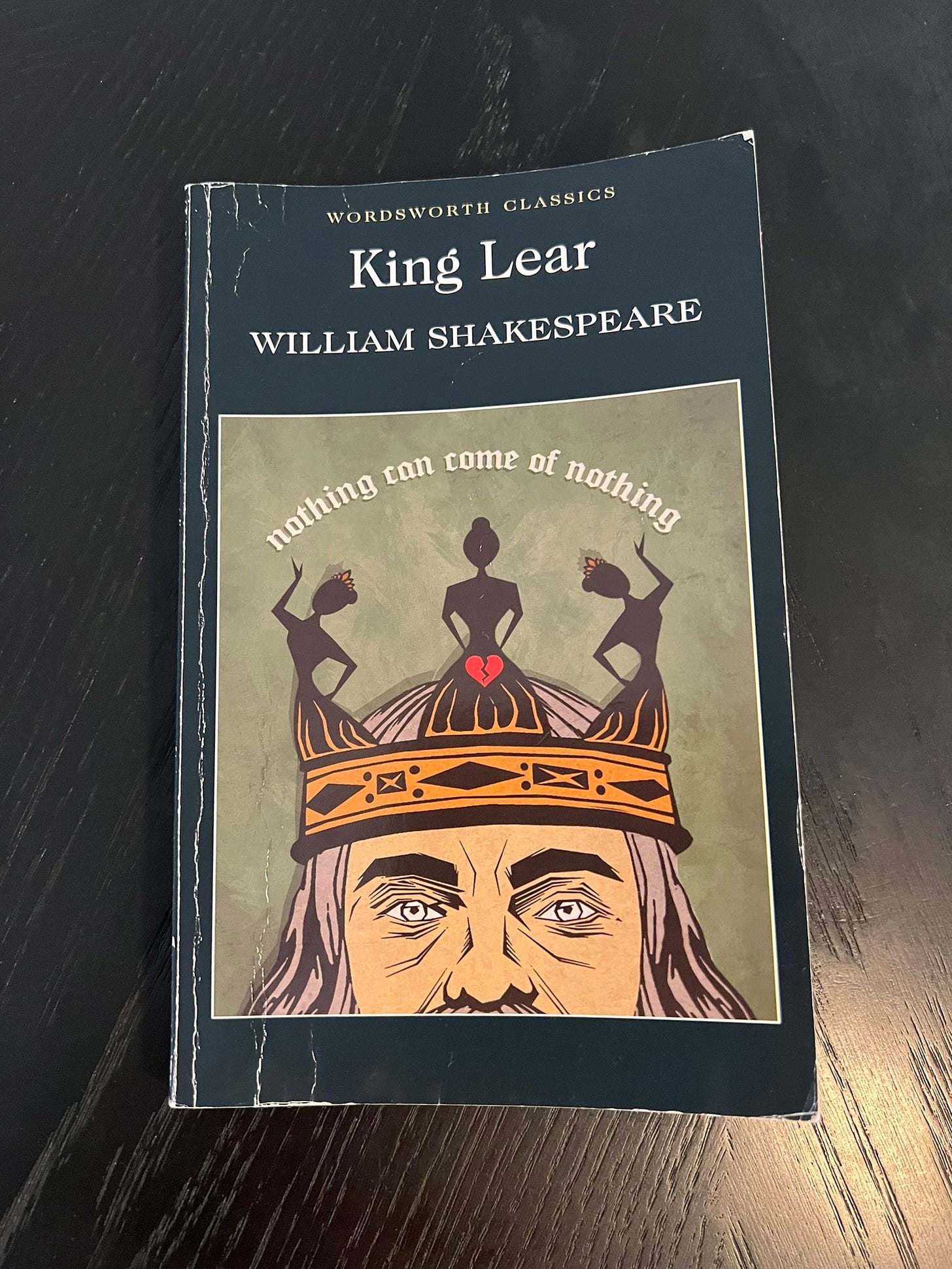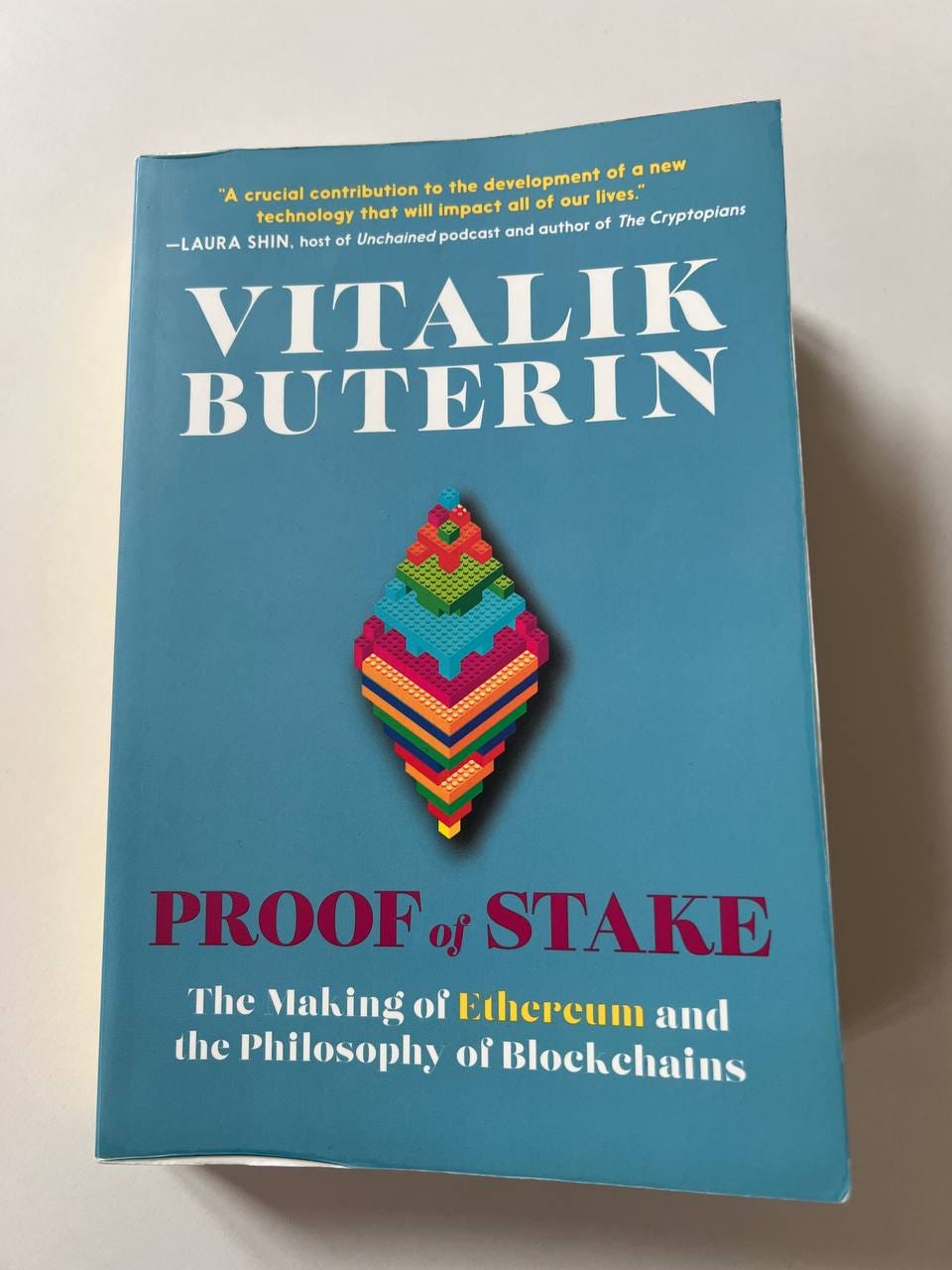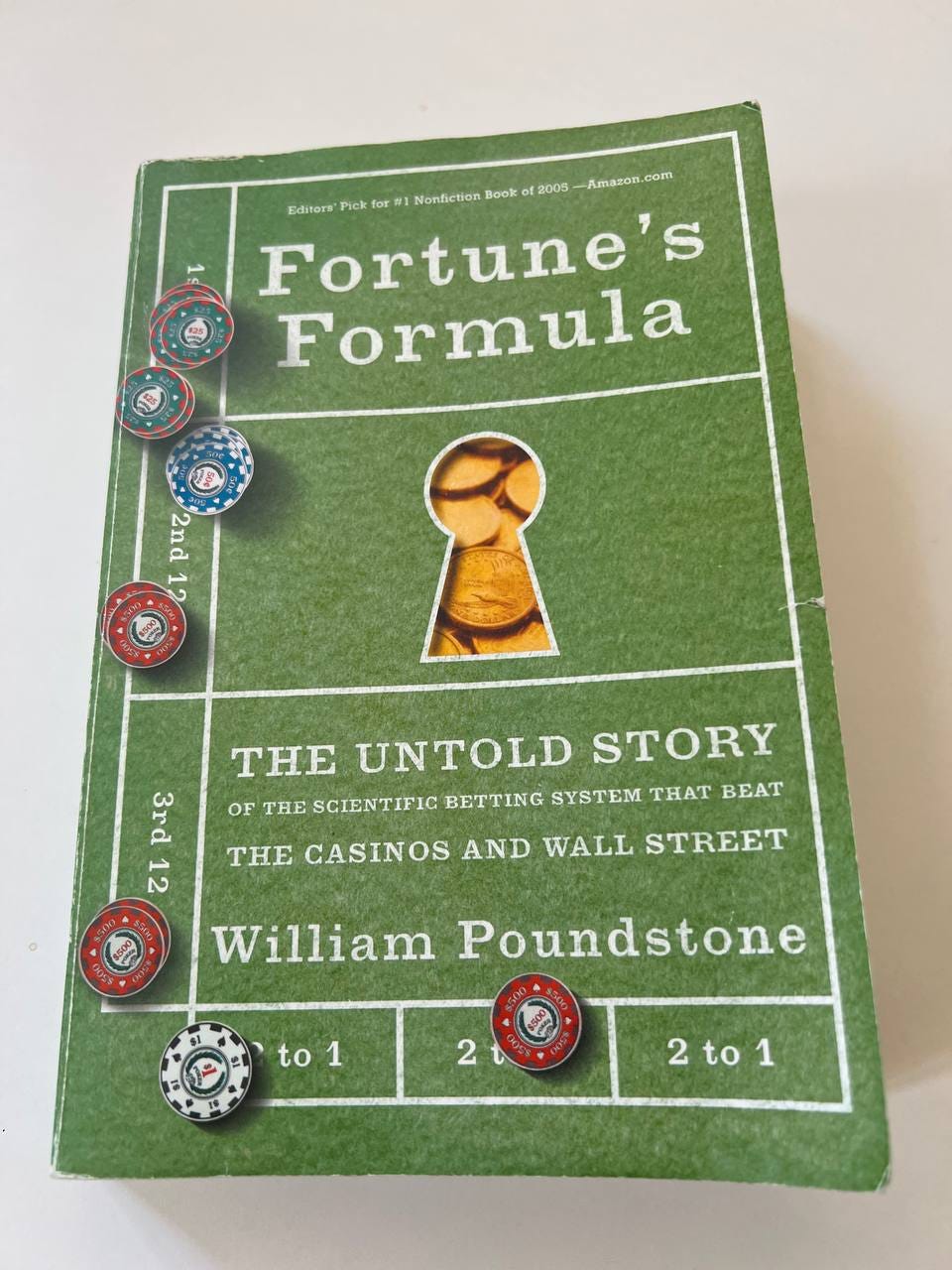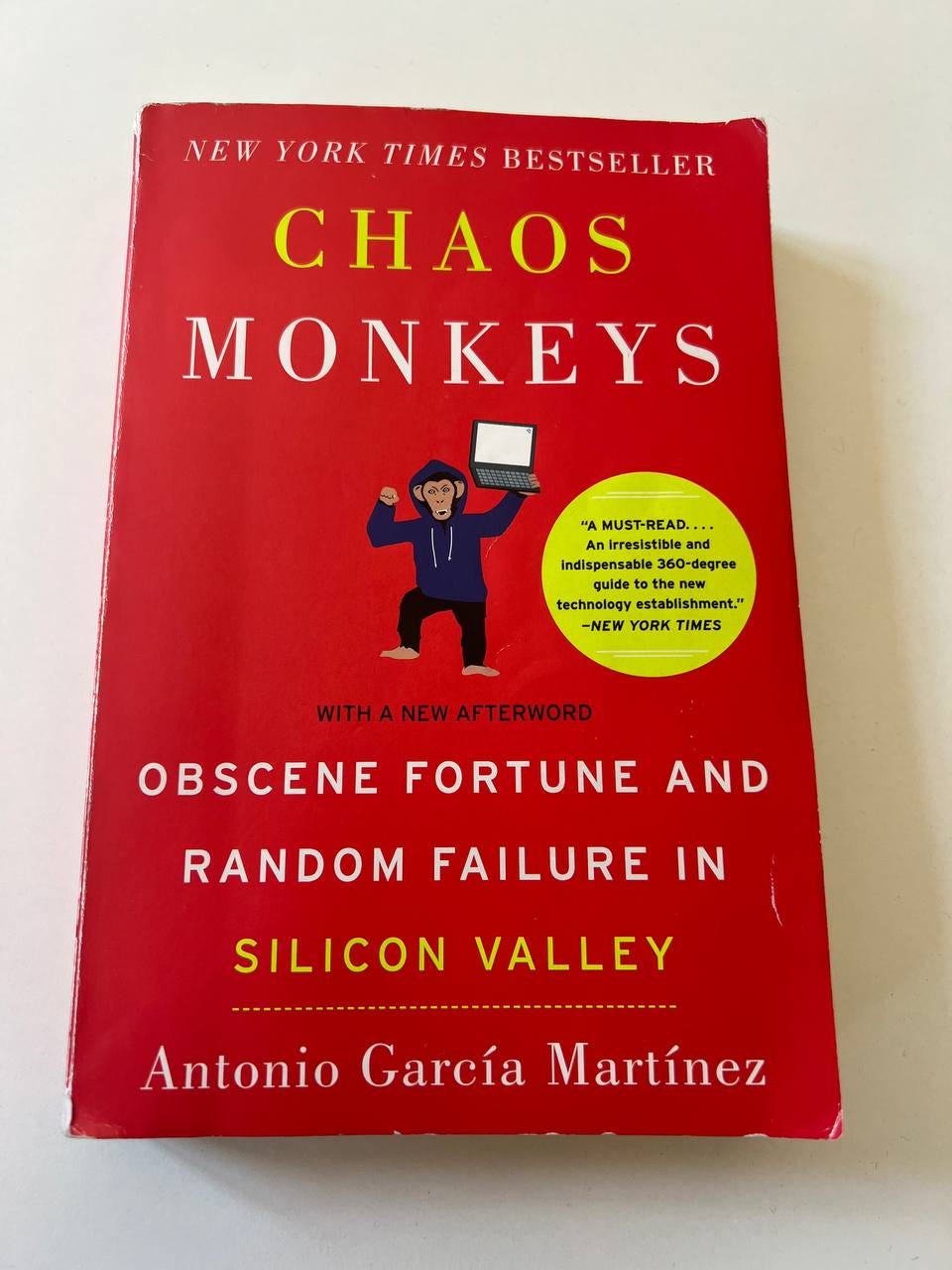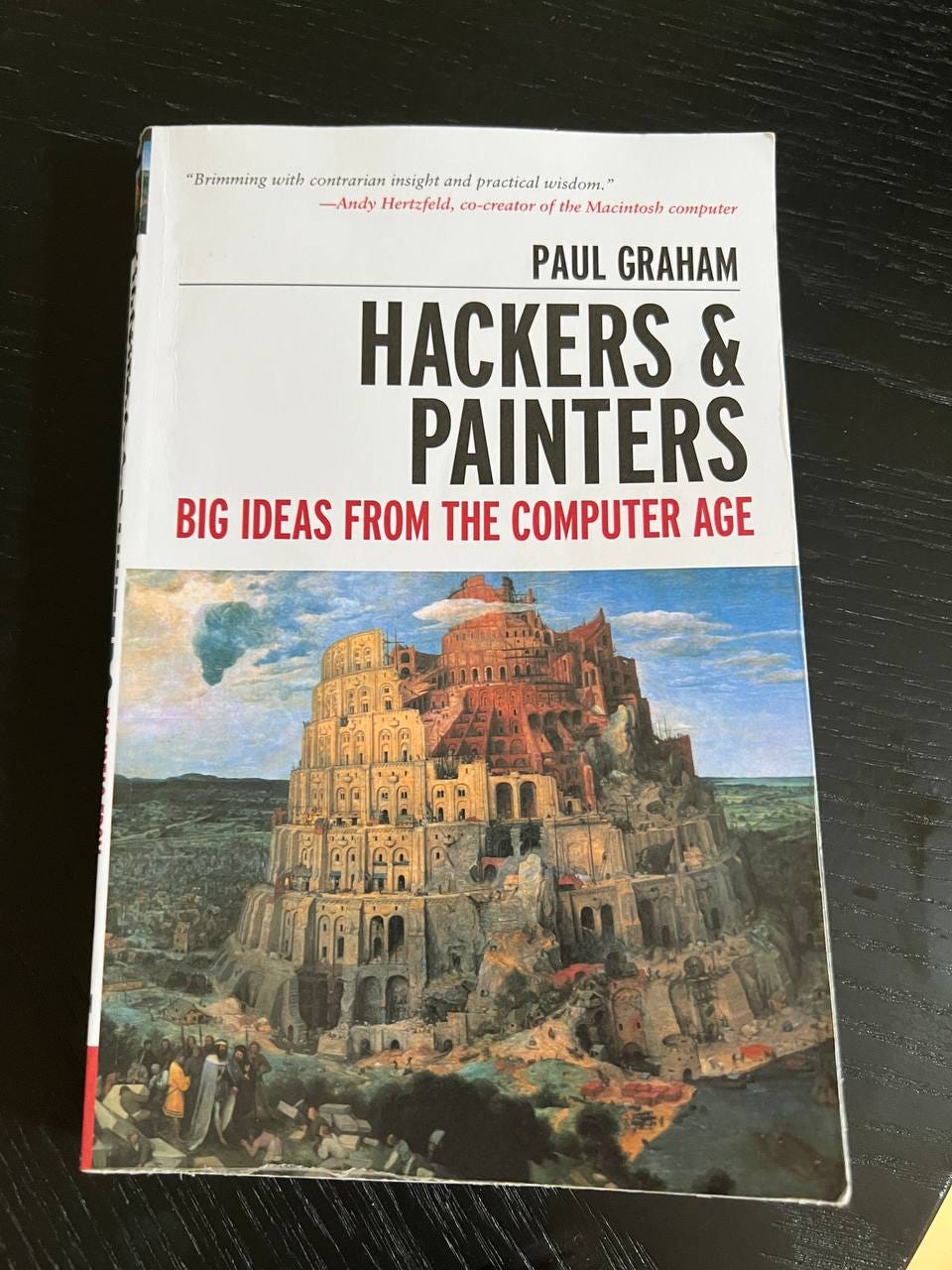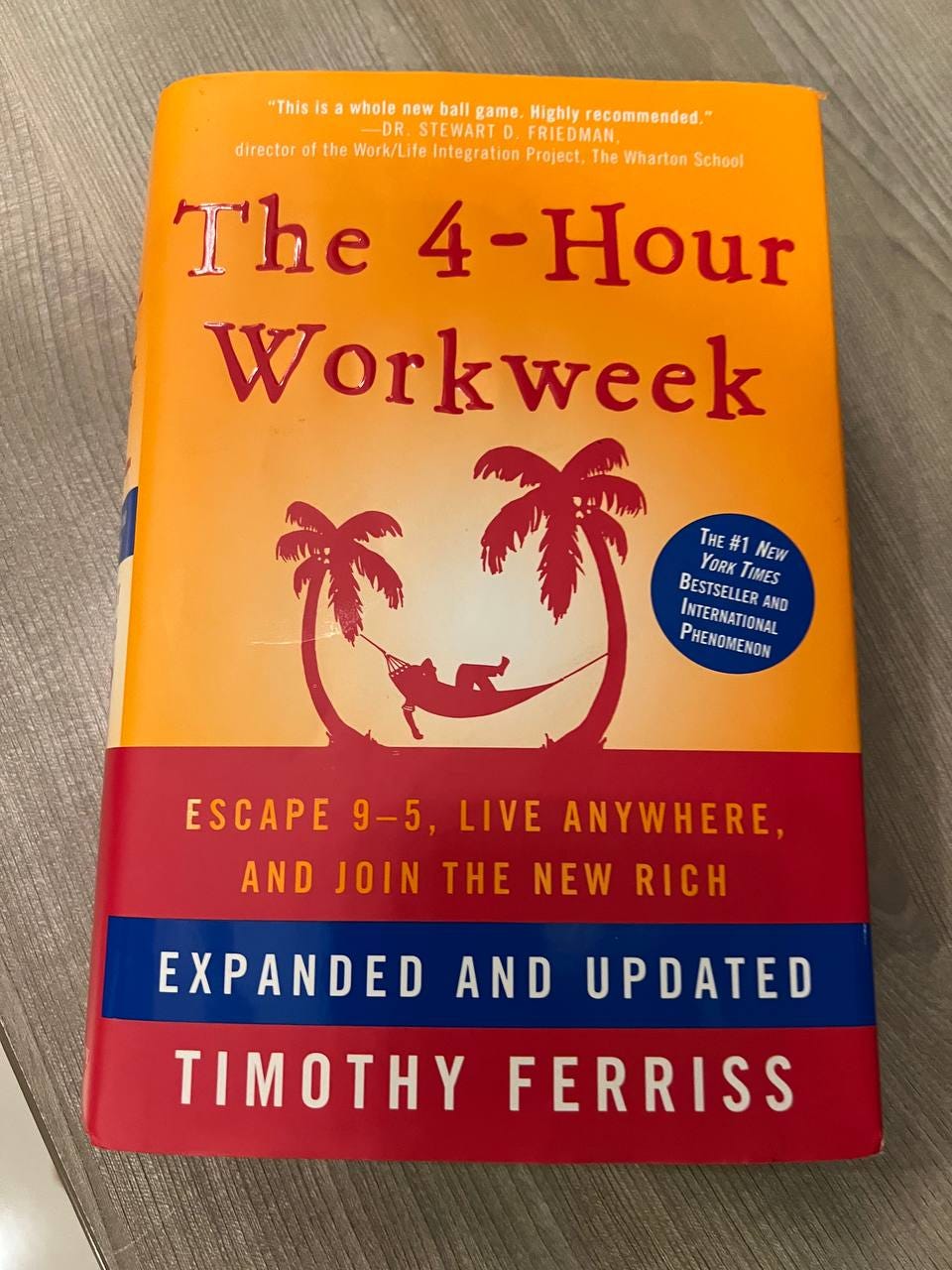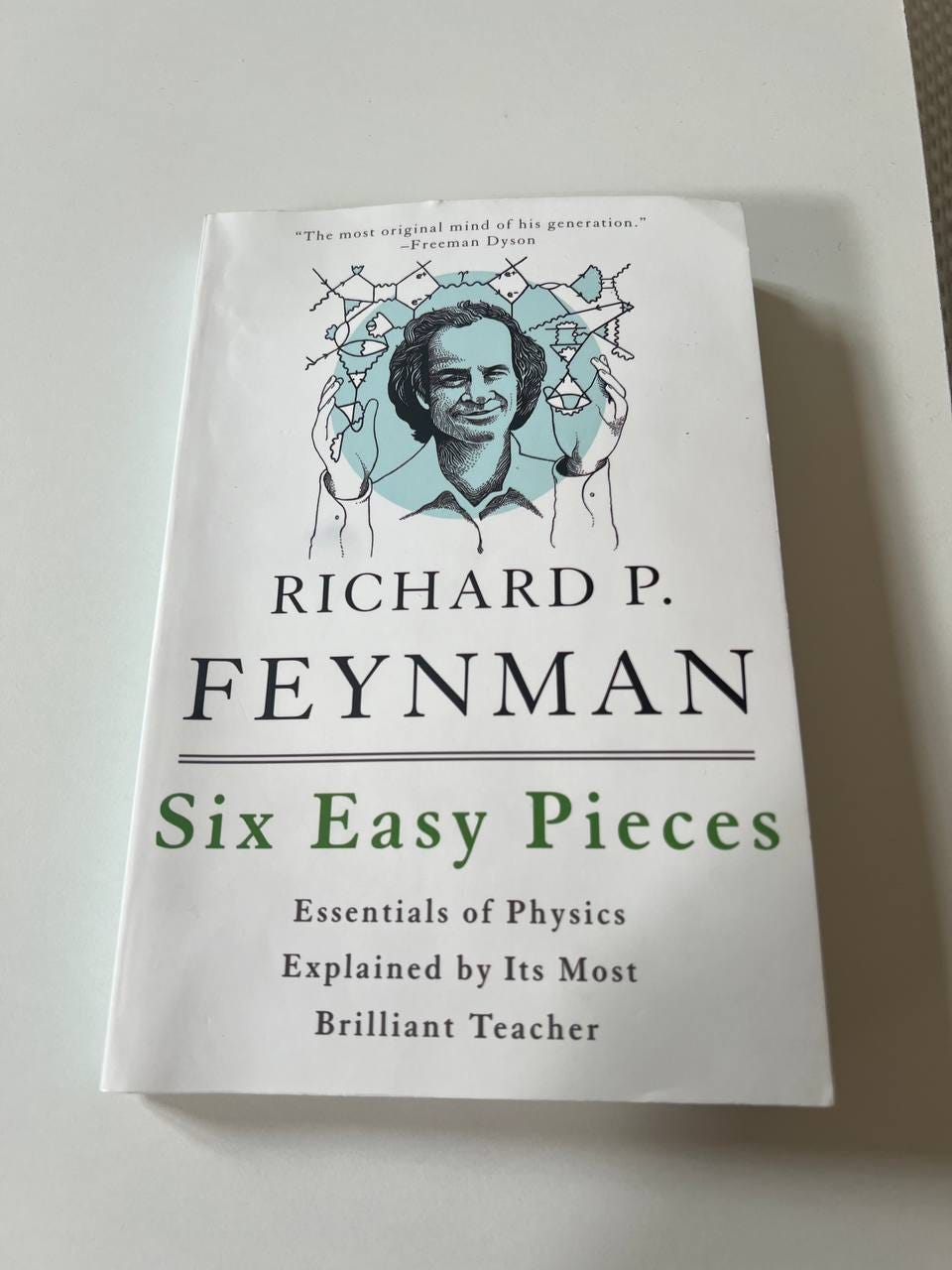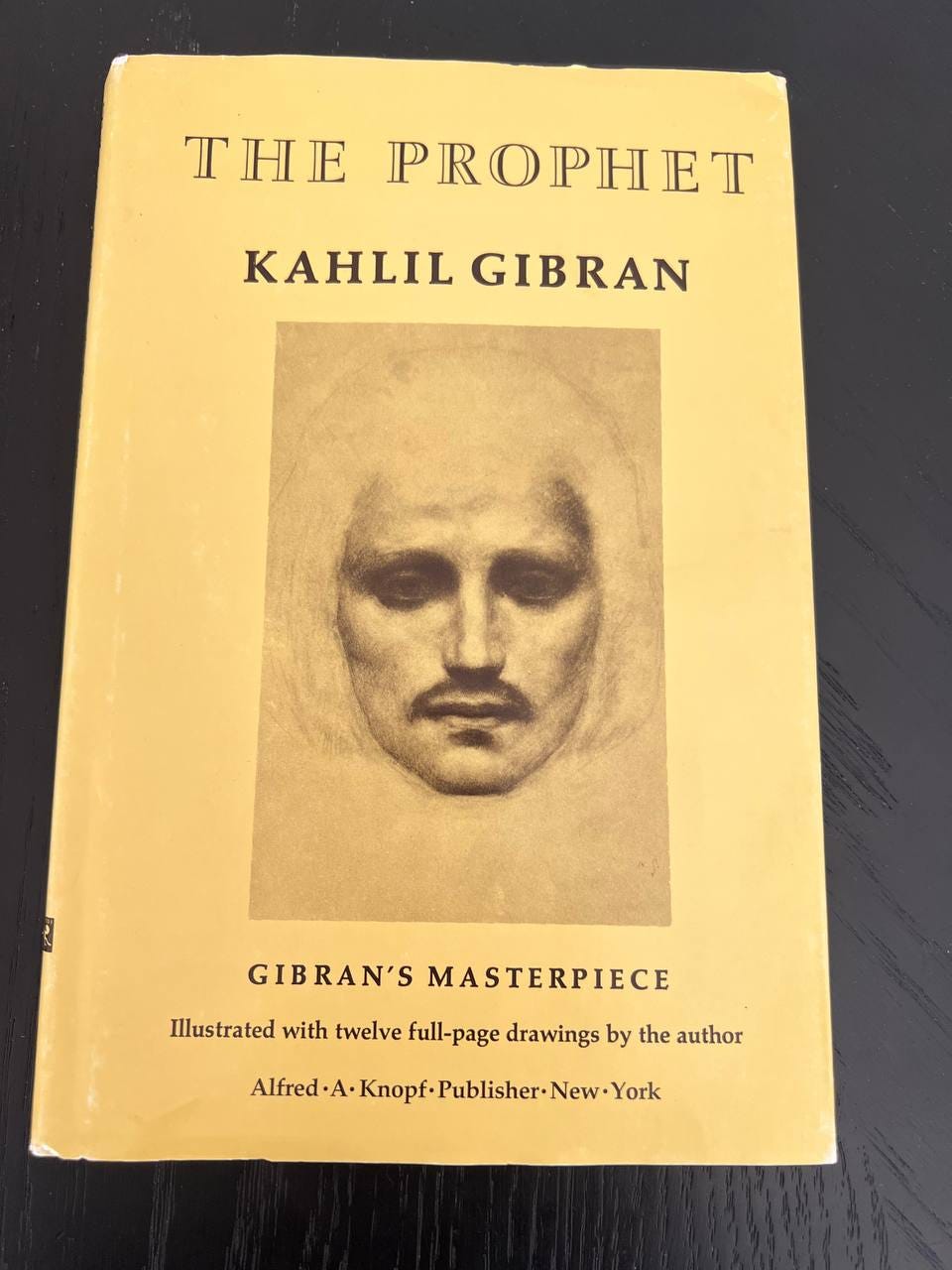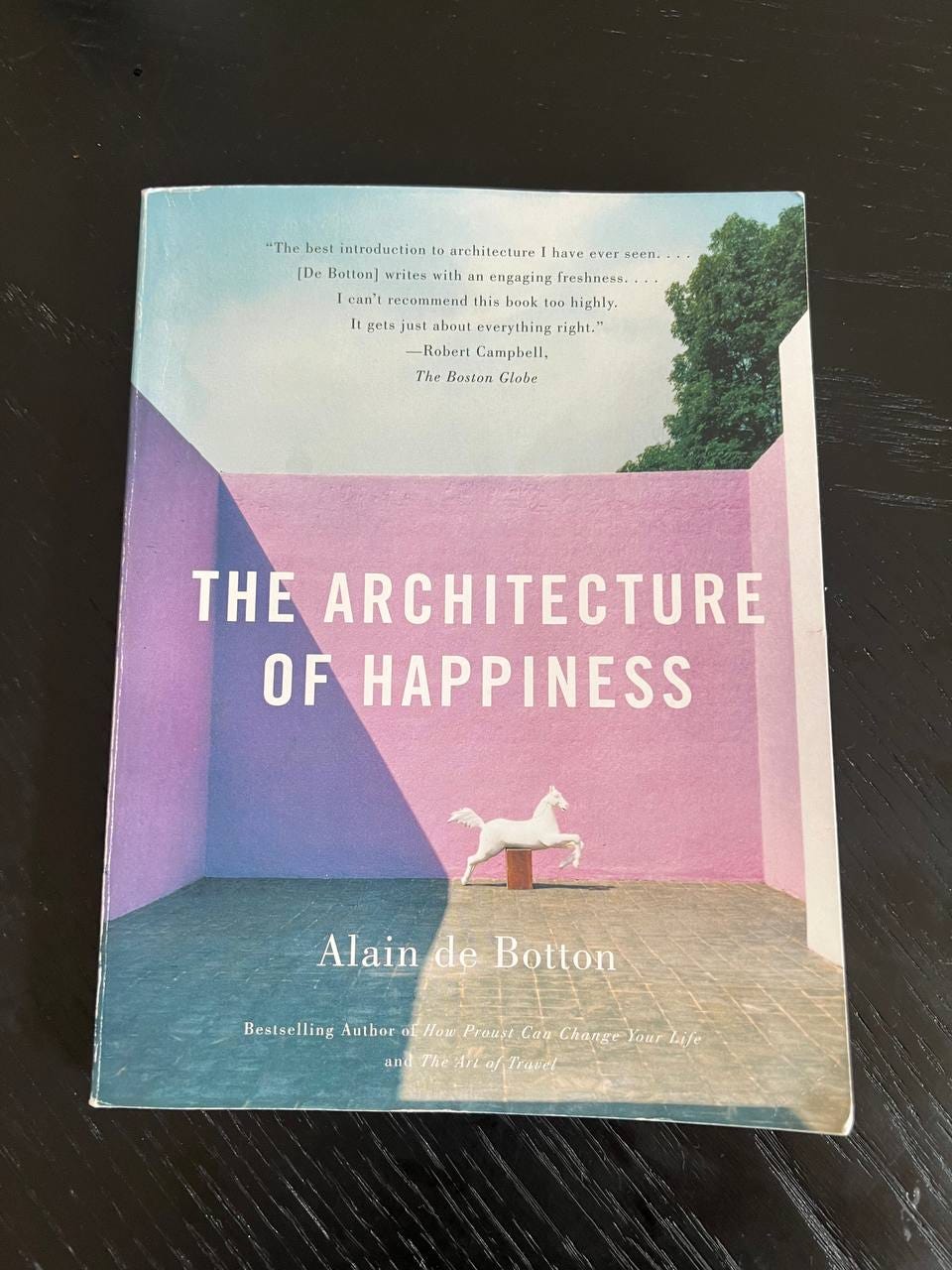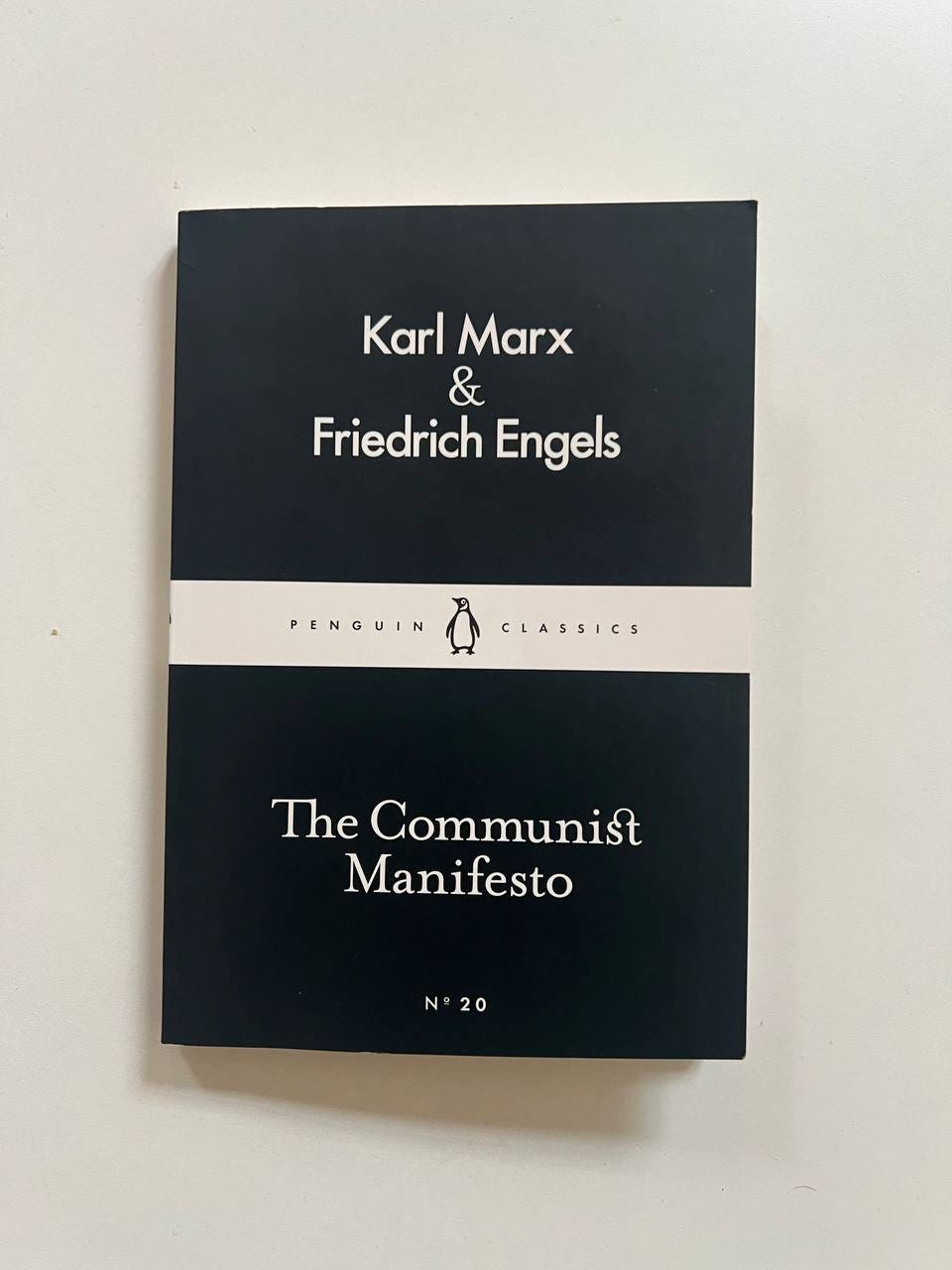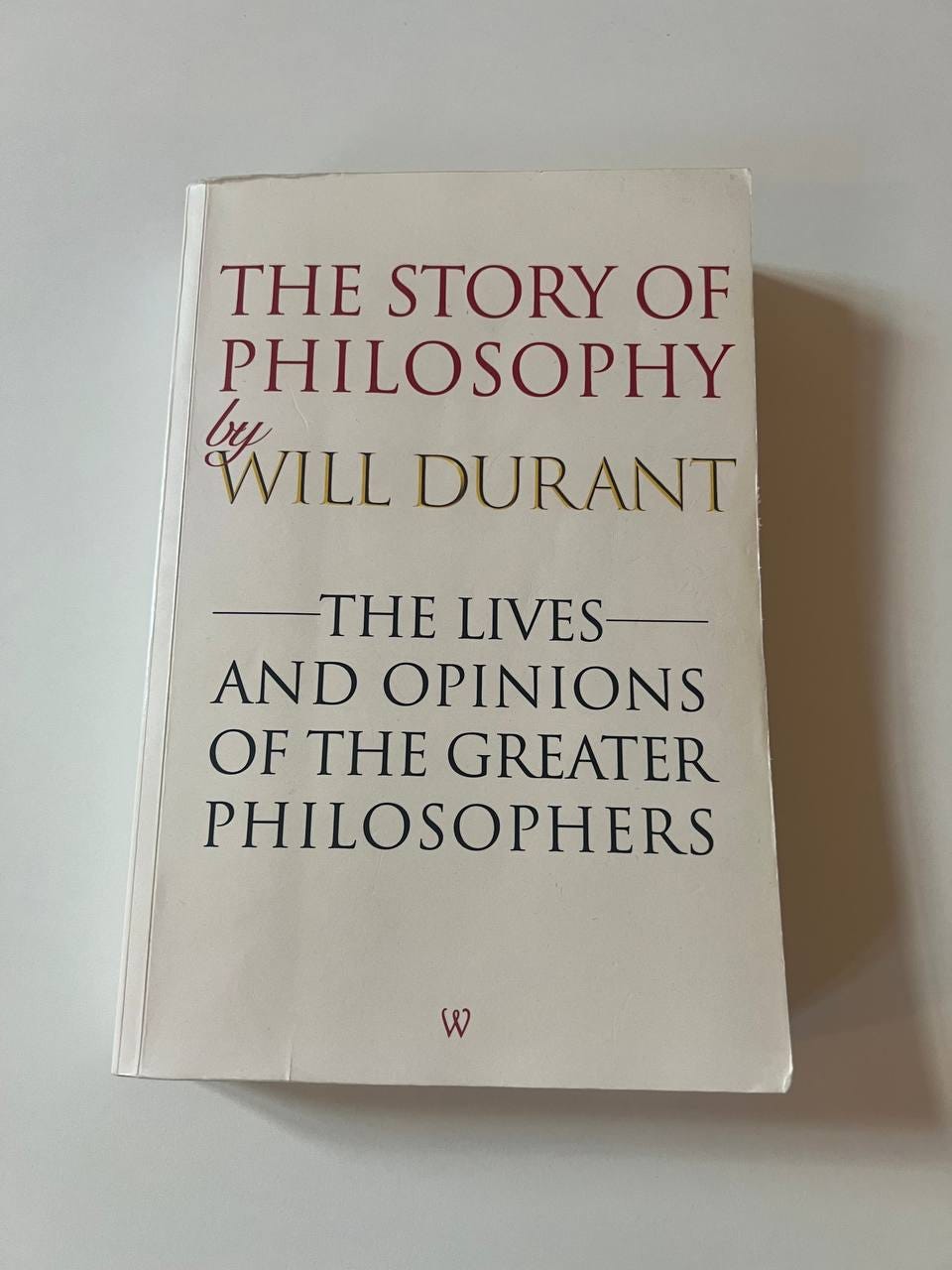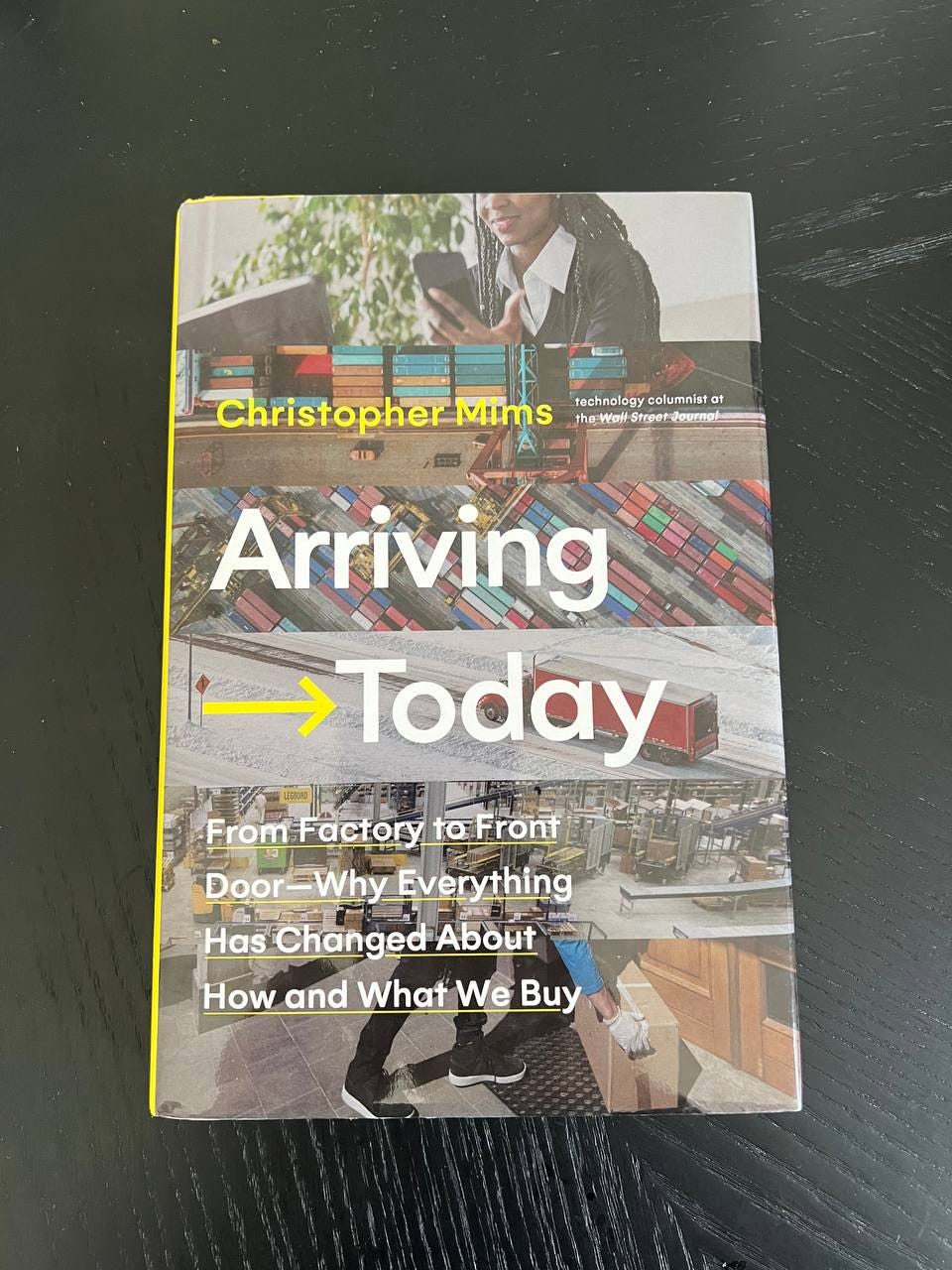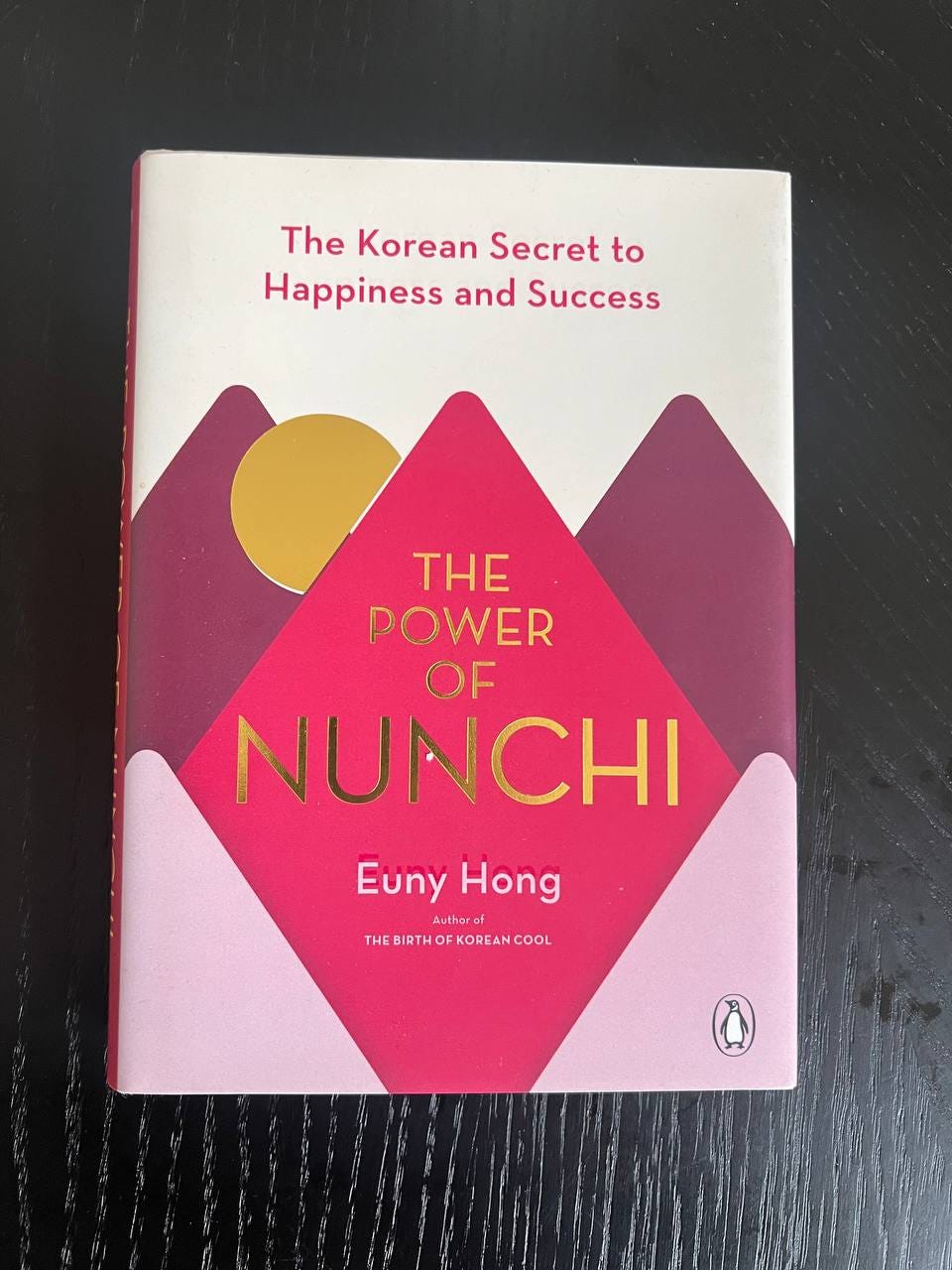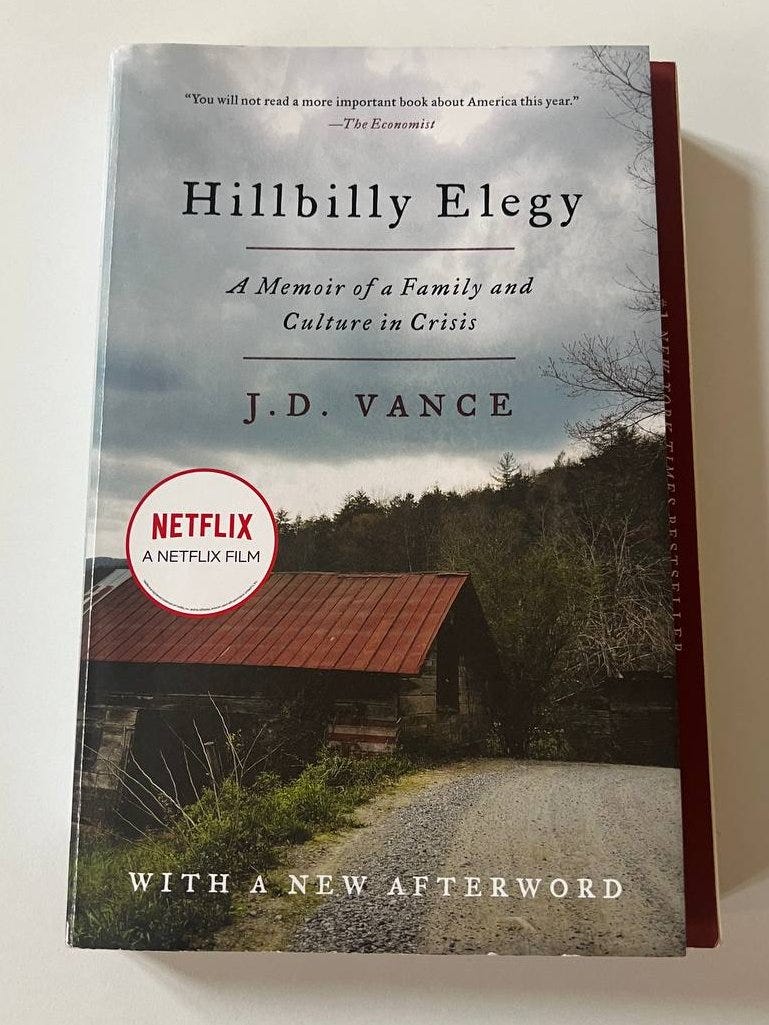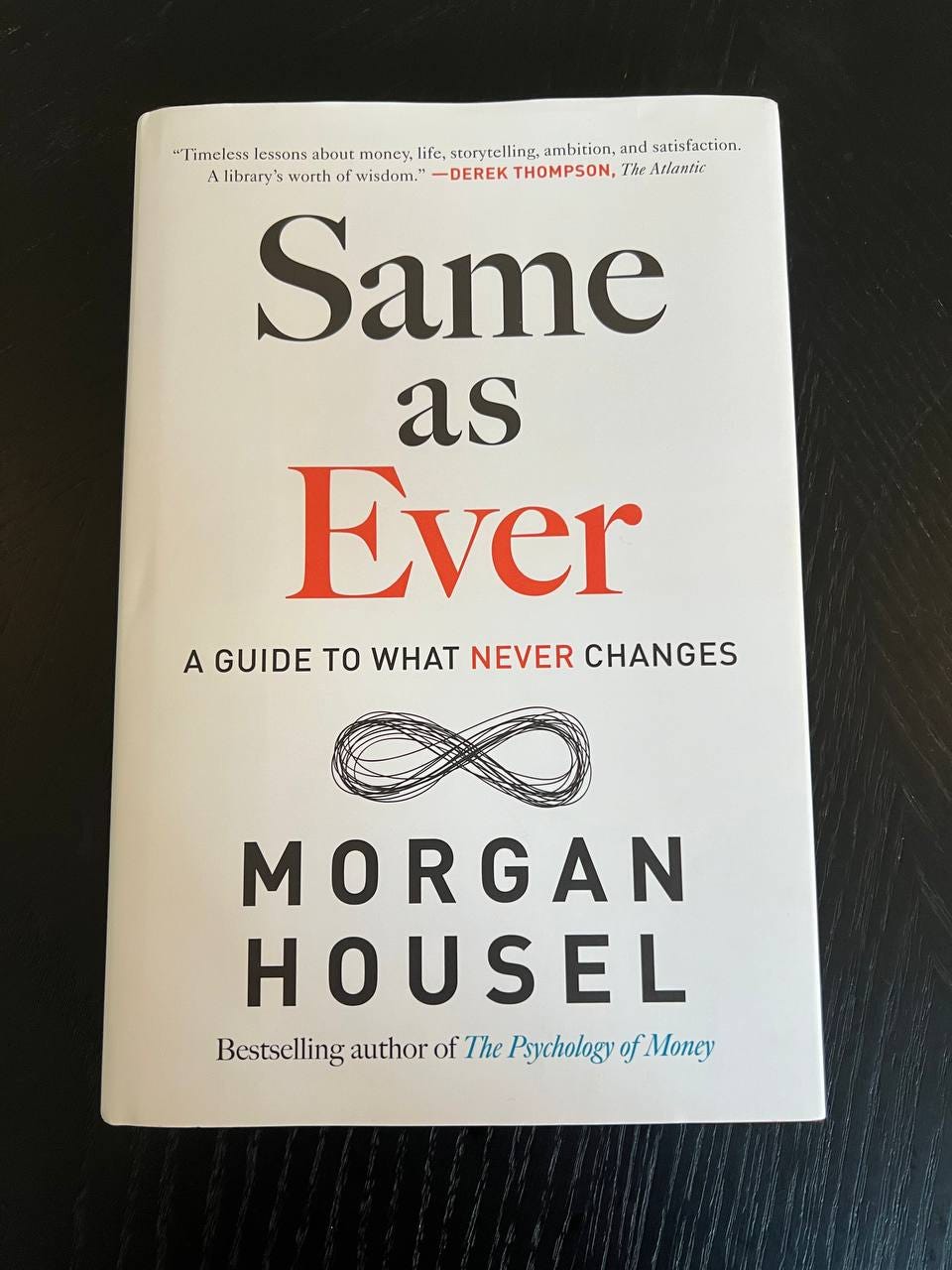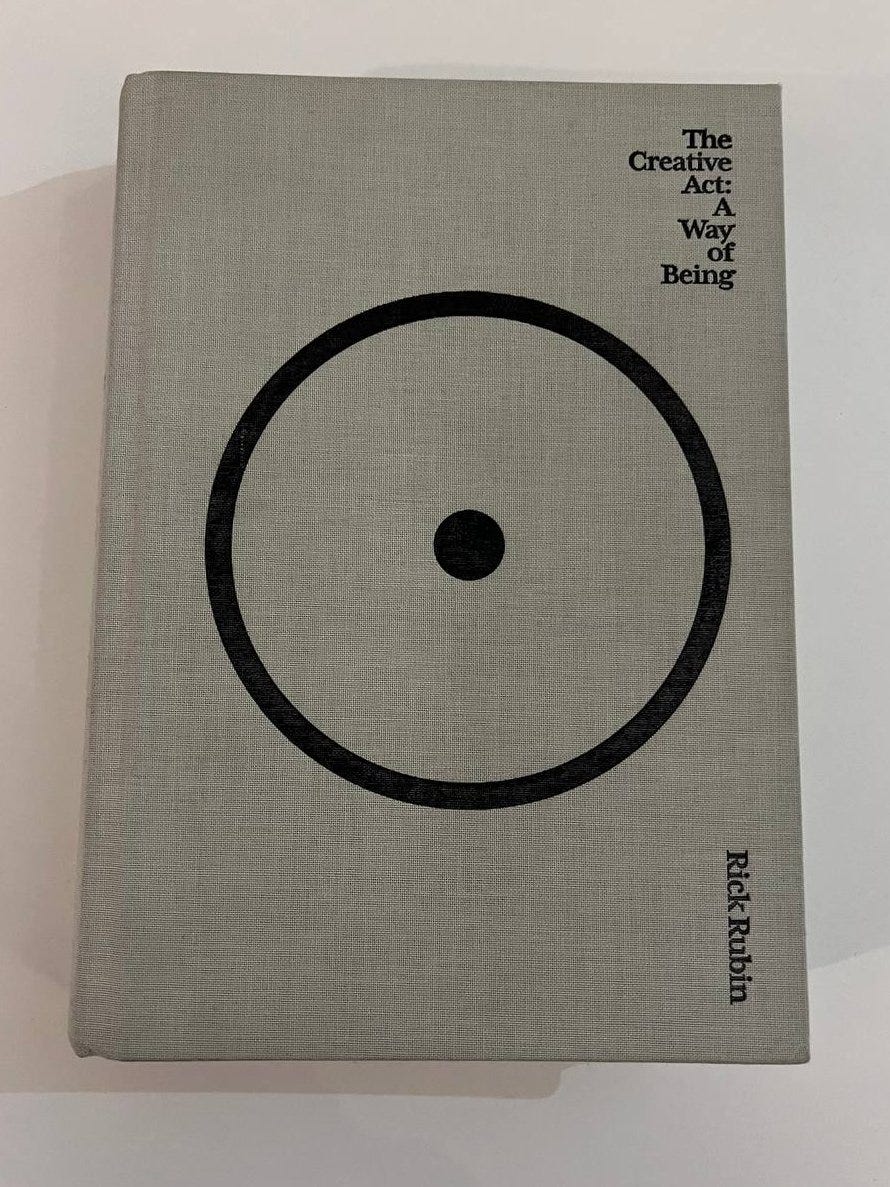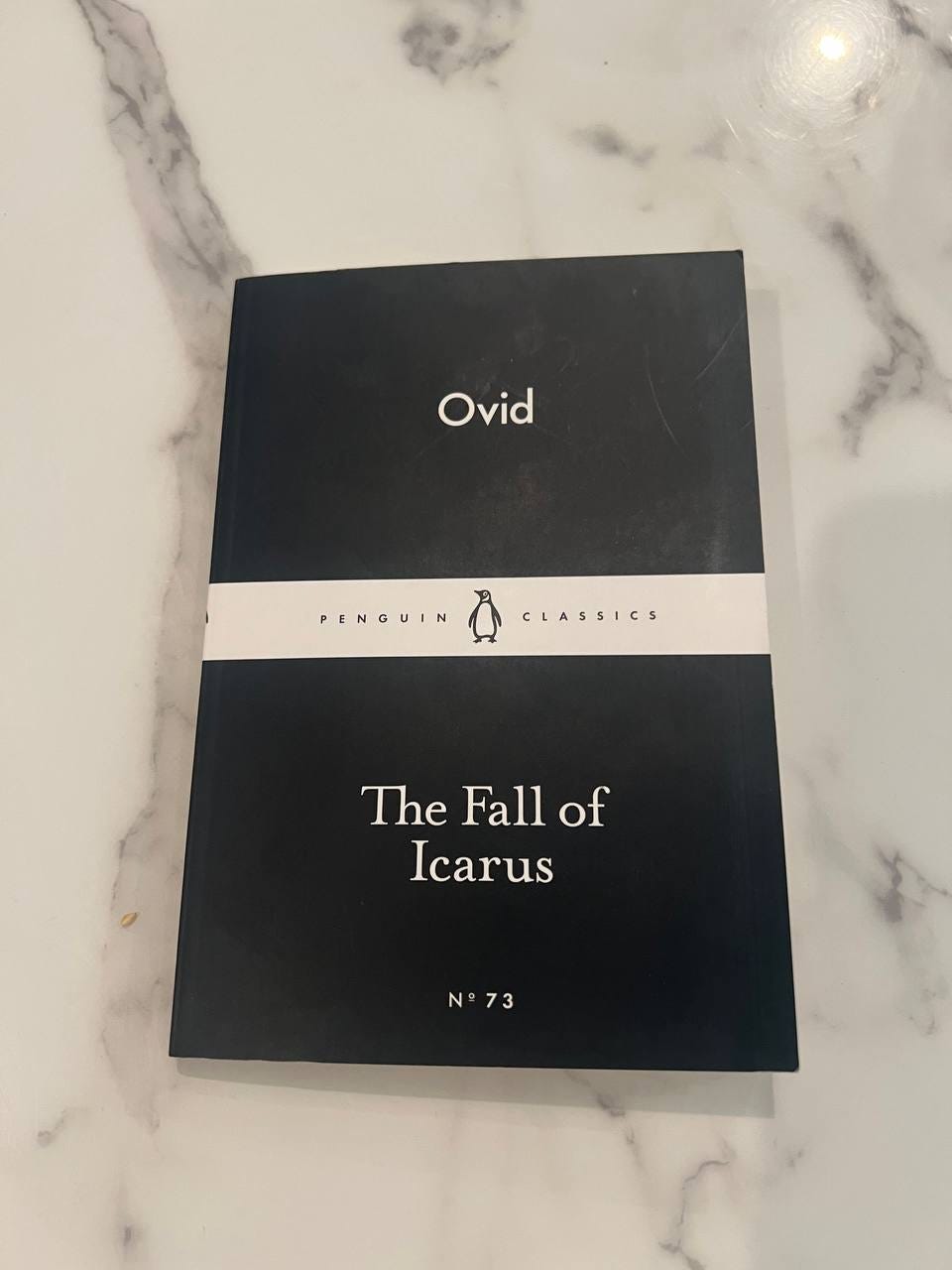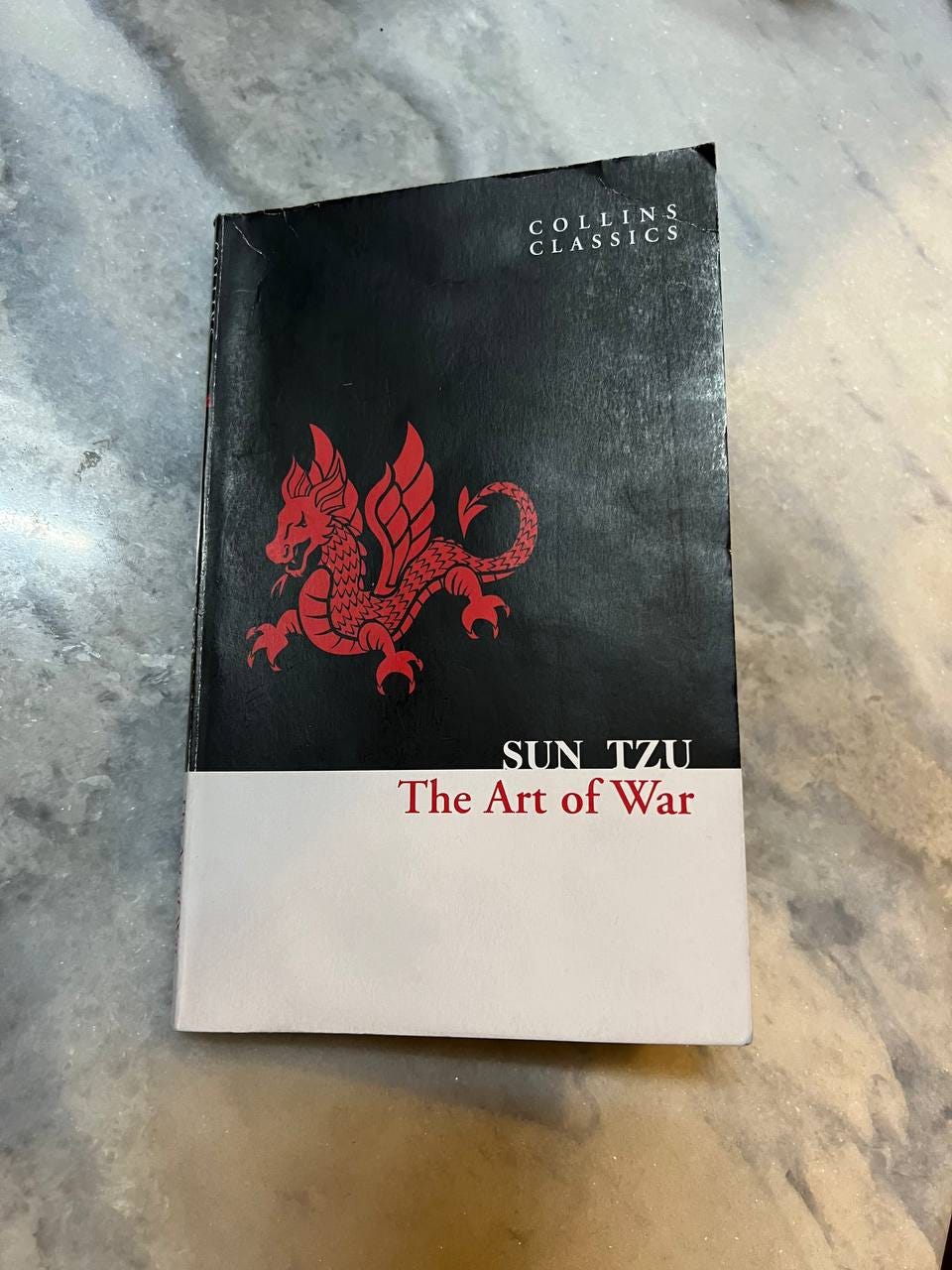Mea culpa: IT IS JUNE 2025 ALREADY.
“Year in Review” type posts are supposed to go out in:
Late December (if you’re a real pro)
January (if you’re a casual that mostly has their shit together)
Sometime in Q1 (if you are just a complete mess)
So it should go without saying that doing this mid-way through the next year is just completely beyond the pale, and yes, I know it.
That said, Speculations is also supposed to serve as a public journal for myself, I never committed to any sort of publishing conduct or standards (remember: DO NOT SUBSCRIBE).
I’ve already done the work of actually cataloging the books and writing mini reviews (all of this done in real time on the X/Twitter), so I am going to capture that work here on Substack. We’re in the highly disjoint, post-Tower of Babel era of the Internet, so having your content live and breathe in all the parallel worlds (gated web2 platforms) is a sort of surface area exposure to positive randomness / spontaneity.
Out of respect, I won’t shoot this to anybody’s inbox and I won’t really post it to other socials. Maybe nobody will ever even find this version of the post and these words are completely wasted into the void…
Asparagus… Rhinoceros… Mogadishu…
…but maybe not?
Worst case I am at least creating the precedent to come back at the end of this year and do a properly timed (let’s hope) version of this post again in 2025.
This post is based on an X thread I kept through the year in real time as I completed each book.
Last year I set specific reading goals for the year (literally had KPIs I tracked) and was really happy with my results:
I finished reading more than 20 books, with progress ongoing on a bunch of others, and branched out into other languages and new genres.
Beyond the progress, I found the very process of regular sharing what I was reading to be both a practical exercise in public accountability and a sort of nice personal ritual that “completed” the reading of each work.
So, here’s what I read in 2024:
1.) The House of Rothschild by Niall Ferguson
I finished the first volume of ‘The House of Rothschild’ by Niall Ferguson.
A very thorough and enjoyable account of the Rothschild family and their business in the first half of the 19th century.
Due to their tremendous importance in Europe during this period, it also becomes a detailed history of European economic and geopolitical affairs - as well as an overview of the treatment of Jews in Central and Western Europe.
I own the second volume and also plan to read it at some point, but will likely hold off on doing so for a bit as it’s quite an undertaking to get through full text given length and density (will read some other books first).
Also highly recommend Ferguson’s ‘The Ascent of Money’ which I read last year and really enjoyed.
2.) Rainbows End by Vernor Vinge
I finished the Sci-Fi classic 'Rainbows End' by Vernor Vinge.
Vinge is a part of the early 2000s Singularity movement and the book is incredibly impressive in the comprehensiveness of its tech vision - pretty much everything described now exists, is in the process of existing, or could plausibly exist in the not too distant future.
It describes a very plausible, if not likely, technical future; Visionary.
3.) King Lear by Billy Shakespeare
I read the classic ‘King Lear’ and also listened to an acted version of the play on Audible. This Shakespeare guy has a very bright future ahead of himself!
4.) Proof of Stake by Vitalik
I read Vitalik's 'Proof of Stake'.
He's arguably the most famous public figure in our space and yet somehow his writing still feels under-appreciated.
If you would have simply followed along with Vitalik's writing in real-time, it seems you would have stayed roughly 3-4 years ahead of public discourse across a huge array of major crypto topics; the book itself is essentially a backtesting of this.
It will become my default recommendation for those that feel they are not “crypto native” enough - as it's a clear evolution of Vitalik's thinking that also provides a sort of primary-source history of the major ideas and events in the crypto space as they happened.
5.) Fortune's Formula by William Poundstone
I read ‘Fortune's Formula’ by William Poundstone.
It's a history of the Kelly criterion in mathematics and spans a narrative that includes Information Theory, Organized Crime, Gambling, Economics/Academia, and Financial Markets.
A great read.
6.) Chaos Monkeys by Antonio García Martínez
I read 'Chaos Monkeys' by AGM.
As someone who also lived in SF for part of the time period discussed and sort of attained “business-sentience” during that time, it was fun to read a firsthand account of a cast of characters that I was broadly aware of from afar (at YC, Twitter, Facebook).
Also, as someone without an AdTech background, I always appreciate getting an insider's account of the history of certain industries, so it was helpful to learn about the creation of the Facebook and Twitter ad platforms in those early days.
Finally, I now associate AGM firmly as a sort of Valley Insider (MOZ podcast, multi-time founder with bluechip VCs, etc.), but it's always fun to read an author's perspective from some earlier point of view when they believed themselves to be an outsider.
7.) Hackers & Painters by Paul Graham
I read 'Hackers & Painters' by PG.
Already very familiar with his more recent writings ("recent" being relative, like over the past decade plus) but H&P is a set of early writings that does a great job of bridging the spirit of the dotcom era to what would become "Web 2.0".
Despite an eternity of tech-time passing since the original writing, it holds up incredibly well, which I think speaks to the first principles thinking - indeed, a recurring theme throughout the writing is the ability to think and write beyond one's own time, which PG has clearly done here.
8.) The 4-Hour Workweek by Tim Ferriss
I finished 'The 4-Hour Workweek' by Tim Ferriss.
I've been a big fan and listener of his podcast for nearly a decade now, especially through much of my very impressionable 20s - but for some reason I hadn't sat down to read his original oeuvre.
My one-word review for the book in the year 2024 is that the 4HWW has become: "quaint."
Not because the ideas aren't brilliant, but because so much time has passed and Tim was so prescient in writing the 4HWW that many of the “New Rich” digital nomad concepts introduced in the book are now very widely practiced in the era of widespread remote tech, international crypto, and online self-employment.
That said, even all these years later, the book still sparked ideas for tips and experiments that I hope to introduce in my own life and goal planning - this has always been a strength of his and the ideas have continued to hold up.
Tim Ferriss is obviously very well known, but I think in some ways he still doesn't quite get enough credit for being at the vanguard of the digital nomad movement so early.
9.) Six Easy Pieces by Richard Feynman
I finished 'Six Easy Pieces' by Richard Feynman.
A great refresher on Physics from a very intuitive first-principles thinker.
Would have loved to read this book as a teenager, I think it would have made me more engaged in my Science coursework.
10.) The Prophet by Kahlil Gibran
I read 'The Prophet' by Kahlil Gibran, which I received as part of a beautiful wedding gift from my dear friend Miguel Cuneta and shall now always associate with him.
A book of profound contemplation, wisdom, and soul; Kahlil Gibran lovingly reflects upon the human experience in beautiful prose.
“And it is with this belief and this knowledge that I say, You are not enclosed within your bodies, nor confined to houses or fields.
That which is you dwells above the mountain and roves with the wind. It is not a thing that crawls into the sun for warmth or digs holes into darkness for safety,
But a thing free, a spirit that envelops the earth and moves in the ether.”
11.) The Architecture of Happiness by Alain de Botton
I read 'The Architecture of Happiness' by Alain de Botton.
I wanted a book covering a breadth of architectural topics and history for someone more novice in the topic - and this was not the right book for that.
This is an overview of how human psychology is impacted by the built environment, but it was difficult for me to vibe with de Botton's perspective.
Alain de Botton strikes me as incredibly public-spirited and so, in fear of seeming judgmental, decides instead to give endless small observations in place of a strong point of view. Towards the end he starts to give a perspective, but again, his fear of judgment becomes a sort of fear of hierarchy, and his conception of the beautiful becomes very muddled indeed.
12.) The Communist Manifesto by Marx and Engels
I read 'The Communist Manifesto' by Marx and Engels.
(Probably shouldn't get "credit" for it as a book but I had been meaning to read it for real and it was a book form factor.)
hmm, well, I tried very hard to be good faith and nuanced about the reading - perhaps the most generous thing I can say is that small subset of the observations are real frustrations and I can understand how certain people might latch onto those examples, at the exclusion of all the wrong ones, and resonate with the philosophy.
That said, the book is full of malice, zero-sum thinking, and even his short-term extrapolations have proven wildly incorrect. It critiques a combination strawman capitalist system / one that *maybe* briefly existed in his time but doesn't exist anymore. So much of the premise is incorrectly observed that it's almost a waste of time reading some of his wild conclusions.
It's a shame people still put any weight into this thing despite the century and a half of evidence to the contrary now.
I'm adding nothing new or interesting to the review of this work, but I personally found value in incorporating it into my mental model given its historical importance - even if he pretty explicitly hates me.
13.) The Story of Philosophy by Will Durant
I finished Will Durant's 'The Story of Philosophy'.
It was actually one of the first books I started this year and I've had to pick it up and put it down periodically through the year. Given its length, density of high quality insights, and my sincere desire to read it closely and comprehend it fully - digesting this book has been an undertaking that I feel genuine pride in having completed.
The work itself is nothing short of legendary, it covers a comprehensive history of Western Philosophers and their core ideas and represents a form of thorough popular scholarship that has become altogether foreign to me as a 21st century reader.
Written in 1926, I also value that it represents a more honest account of these Philosophical concepts without the cultural-washing that would be required by the same type of book written this decade; with the distance generations, it feels like a much more objective account of history.
I had read and consumed decent bits of Philosophy in the past, but I was always self-conscious of the tremendous holes in my knowledge and my inability to place ideas in a broader framework of theory and history. While the learning is never complete (it's just starting!), I feel that finishing Durant's work is such a strong foundation that I now have a confident scaffolding upon which to properly build a structure of Philosophical understanding.
A joyful experience.
14.) Arriving Today by Christopher Mims
I read 'Arriving Today' by Christopher Mims.
I've always wanted to learn about the shipping industry, and I was excited to see a book that goes into detail like this one.
It's a step-by-step dive into the different stages of the global supply chain, starting from a factory in Asia, outbound port in Vietnam, container ship, inbound US port, off-loading at the docks, cross-country trucking, fulfillment center, e-commerce order, then middle and last mile.
I appreciated the level of research and interaction the author brought to each step, showing the human-level experience, discussing the history of that industry, highlighting key players, and going into great detail about the near-term technological future of each sector.
It's very much a tech book as much as it is a business book, and it regularly delves into the future of AI, robotics, automation, and the effects these trends will have on individual workers.
I'm always slightly wary of recent books like this one because:
Technology and society change so quickly, and there's always a risk of key information becoming outdated.
Sometimes corporate journalists can get slightly heavy-handed in their moralizing of the subject matter.
Fortunately, this book largely escaped those pitfalls and covered the topic with great clarity and good faith.
Definitely recommend.
15.) The Power of Nunchi by Euny Hong
I read 'The Power of Nunchi' by Euny Hong.
It's a quick read about Nunchi, a powerful Korean cultural practice of gracefully observing and intuiting people and situations.
The early chapters are charming and go into detail about the history and context of the practice and some demonstrations of graceful uses of Nunchi in social settings.
On a personal level, I laughed a lot because I learned the concept a full decade ago while working at a Korean company. This book plus living in Asia in the intervening years made me self-reflect on all my Nunchi violations. At that time I was very deliberately brash (though deliberate is specifically better than unintentional) in a way that is fully comically antithetical to the concept.
My primary critique of the book is that the latter chapters kind of seem to fall off the rails a bit unfortunately. The chapter about Nunchi in the workplace especially seems to lose all of its Asian self-awareness and instead demonstrate distinctly western anti-patterns: strong self-righteousness, snark, rudeness, and straight up bad/incorrect corporate political advice -> all of these are in stark contrast to the rules outlined in the earlier chapters. It gets weirdly misanthropic in tone, harping on about "stupid people" and "hating people" in a way that is unpleasant and directly in violation to the values the author espouses in the rest of the book.
Overall it's a fun quick read and probably still valuable for westerners who haven't spent much time in or working with Asians (and Koreans especially) - though I suppose the caveat here is that the author is not fully native to the concept being taught.
16.) Hillbilly Elegy by JD Vance
I read 'Hillbilly Elegy' by JD Vance.
I'm not sure what I can say about this book that hasn't already been said, but I feel that it's a deeply compassionate work that gives voice to a huge population of Americans who have largely lost that voice in the past several decades.
Perhaps one critique is that, on the personal level, JD Vance is too modest in the book. The book gives great voice to the group but in some ways doesn't give enough credit to the role of the individual. While luck certainly played a part, the book seems to downplay his personal greatness and ability in a major way - which must exist given his story, the way he thinks and speaks in public, in the trajectory we've seen of him since the book, and especially in where he is in this exact moment in 2024.
Anyway, it's a fantastic read and I think basically "Coastal" and "International" Americans in the professional classes should probably read it in a big way. There is a divide that clearly needs bridging and this book is an excellent piece of that picture.
17.) Same as Ever by Morgan Housel
I read 'Same as Ever' by Morgan Housel.
Overall a nice quick read. I found a lot of the macro points to be already familiar or otherwise naturally intuitive to me, but the reality is I'm probably just consuming many of the same upstream content sources (books, blogs, podcasts, etc.) as the author himself - we are swimming in the same pond, so to speak.
With that being said, I see tremendous value in someone doing the hard work of synthesizing that upstream information into discrete mental models and supporting them with relevant historical examples (many of which were not on my radar already).
Would be an especially great book to recommend for those friends that are maybe a bit less online and have done a lot less swimming in this particular "mental model pond."
As a closing note, I love the way Housel gifts the reader with 20 really great questions at the end of the book - as a collector of good questions this is a tremendous value. I transcribed them all into my Roam graph and will use them as personal writing prompts in the future when I need to get ideas out; maybe I'll even use them as fodder for a blog post of my own at some point.
18.) The Creative Act: A Way of Being by Rick Rubin
I read 'The Creative Act: A Way of Being' by Rick Rubin.
I don't believe it would be in the spirit of the work to do an overly detailed review of it, so I won't.
What I will say is that Rick Rubin is clearly an intuitive master of some sort, and as a fellow intuitive-type, his writing resonated greatly with me.
I enjoyed it very much and will come back to certain passages regularly.
19.) The Fall of Icarus by Ovid
I read 'The Fall of Icarus' by Ovid.
10% of this book covers the actual fall of Icarus and the rest is just random Greeks hunting boars and fighting each other because of various slights and insults.
20.) The Art of War by Sun Tzu
I read 'The Art of War' by Sun Tzu.
It can at times be hard to tell how much of it is actually valuable modern advice vs patterns of intensity that the type-A contemporary reader of this book are likely to hallucinate while reading it.
It's a mix of literal play-calls for in-battle tactics ("if the enemy does X, respond with Y" "if you are in this part of the terrain, use this tactic") combined with the occasional profound insight into leadership, psychology, and the human condition.
At the very least, I understand why it has stood the test of time.
"The general who advances without coveting fame and retreats without fearing disgrace, whose only thought is to protect his country and do good service for his sovereign, is the jewel of the kingdom."
Colin Goltra, December 2024 June 2025
…Sneaky Bonus: Manga Reading Thread


